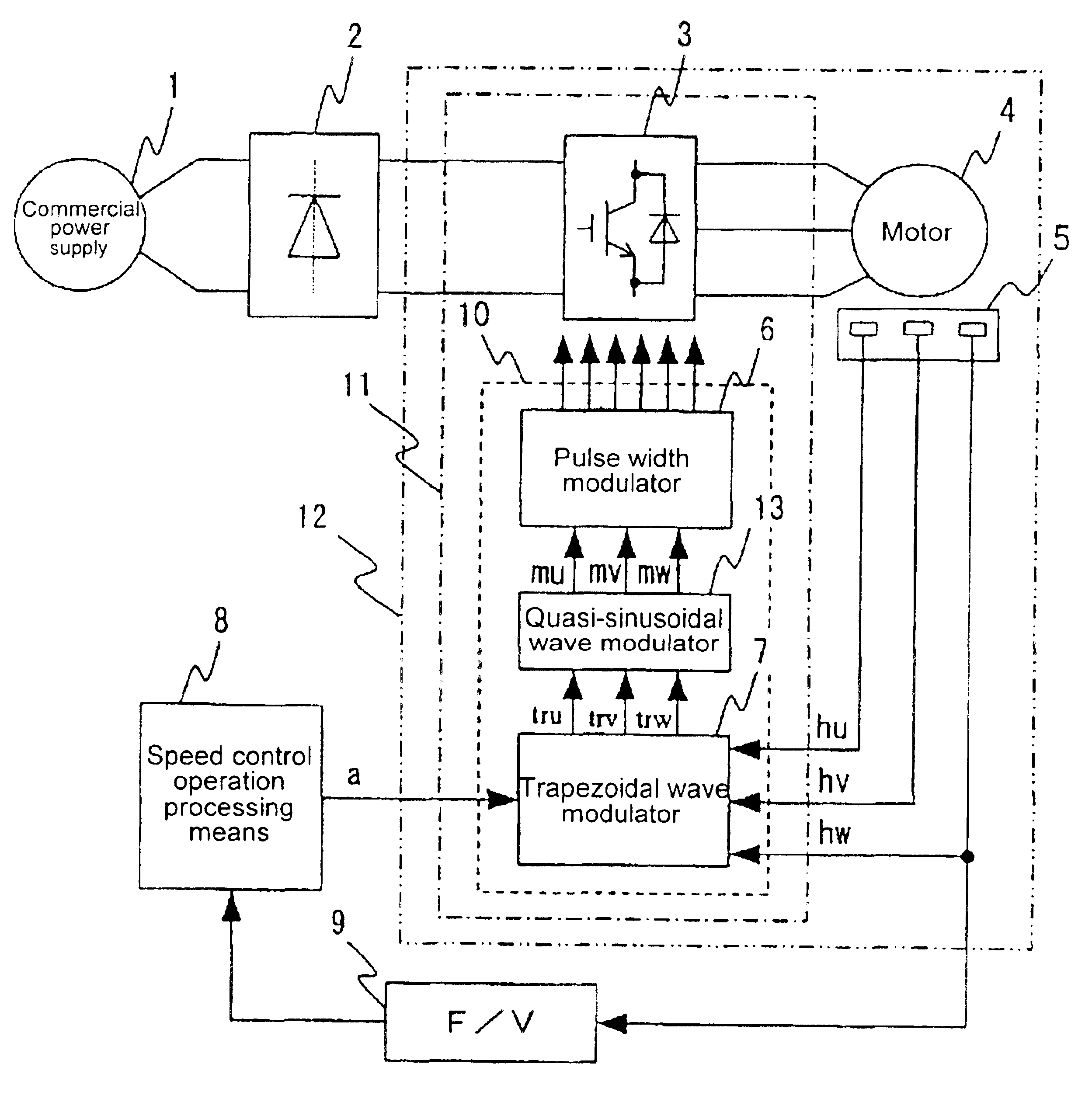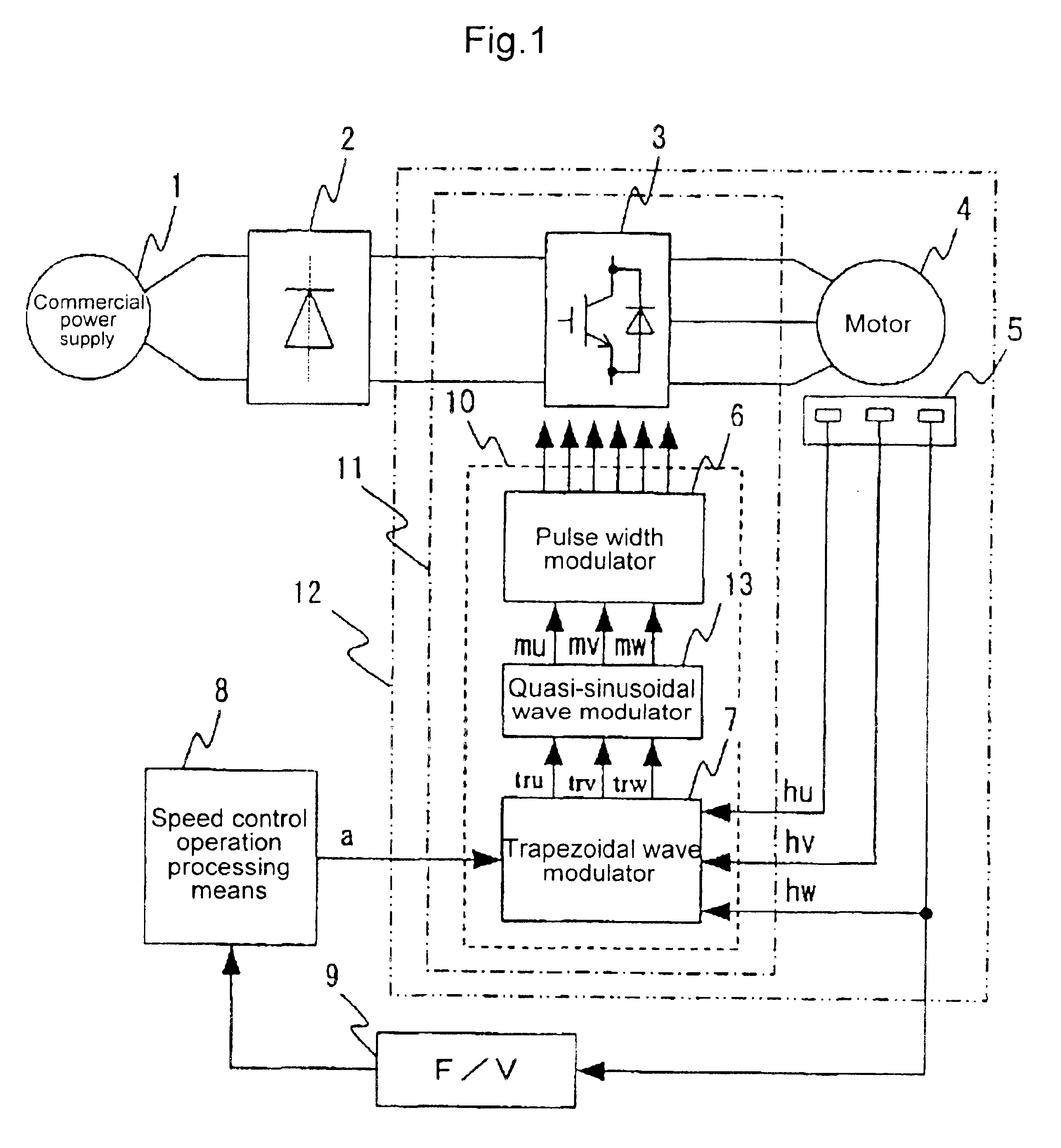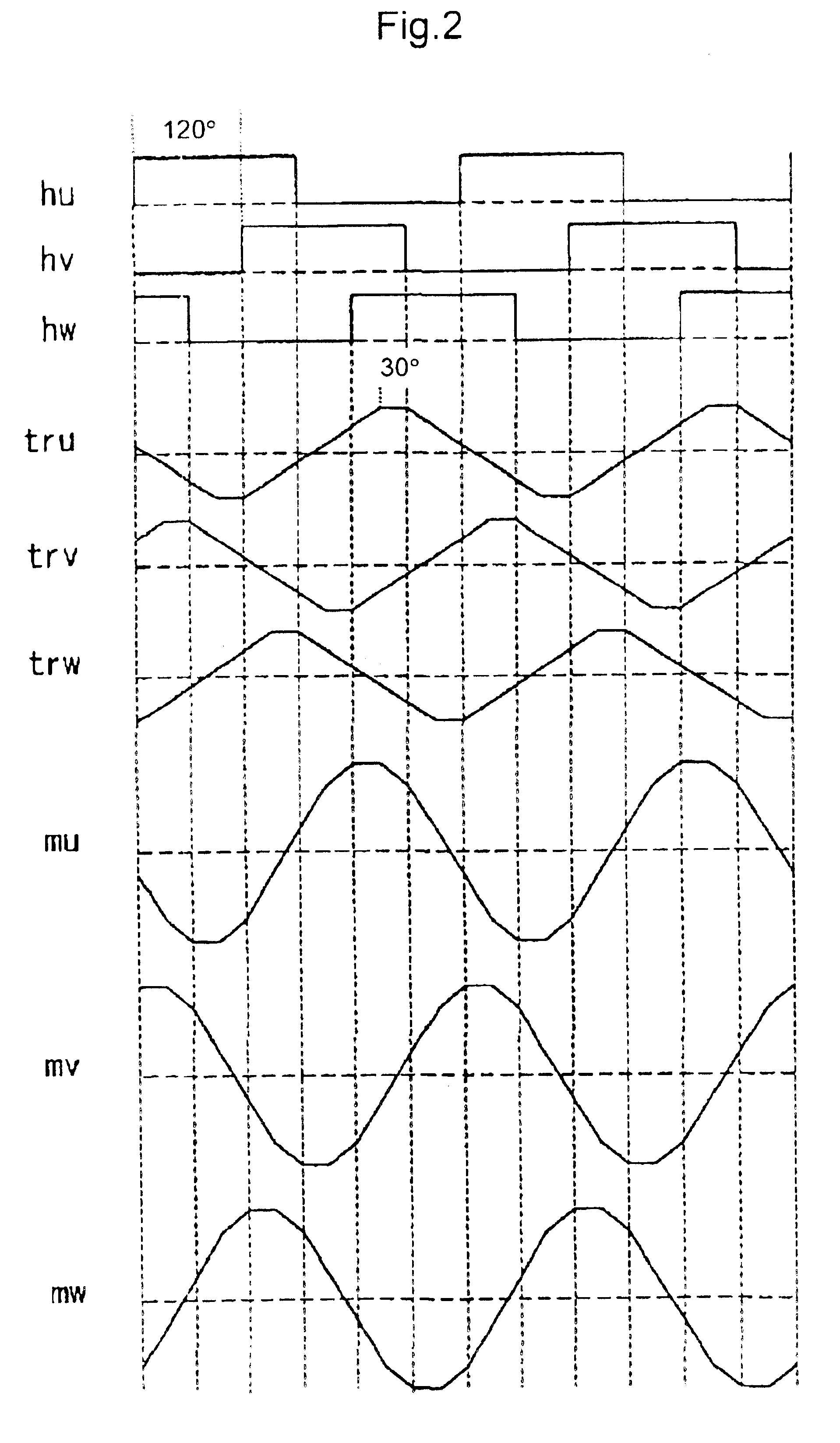Driving equipment and semiconductor equipment for alternating-current motor
a technology of driving equipment and semiconductor equipment, which is applied in the direction of motor/generator/converter stopper, electric motor speed/torque regulation, dynamo-electric converter control, etc., can solve the problems of motor torque generally tending to ripple, complex and expensive methods, and noise generation
- Summary
- Abstract
- Description
- Claims
- Application Information
AI Technical Summary
Benefits of technology
Problems solved by technology
Method used
Image
Examples
third embodiment
the present invention will be described using FIG. 13.
FIG. 13 shows the configuration of a trapezoidal wave modulator 7A together with its peripheral circuits according to this embodiment. A major difference from the embodiments described above is that the second modulation circuit is removed to reduce the size of the modulation circuit. Due to this, in this embodiment, the trapezoidal wave modulator 7A shown in the above second embodiment is used as it is, and arbitrary trapezoidal wave signals tru, trv, and trw outputted therefrom are directly inputted into a pulse width modulator 6 and are compared with a carrier wave, thereby generating PWM signals.
In general, a line voltage is applied to the winding of a motor, and thus even when the waveform energized to each phase is trapezoidal, a voltage having a quasi-sinusoidal wave generated by subtraction of trapezoidal waves between two phases is practically applied. When tru, trv, and trw are regarded as three phases of trapezoidal wa...
fourth embodiment
Next, the present invention will be described using FIGS. 14 and 15. The fourth embodiment has the same configuration as the first embodiment shown in FIG. 1 except that the quasi-sinusoidal wave modulator 13 of the first embodiment is replaced with a quasi-sinusoidal wave modulator 13A. A major difference therebetween is that a quasi-sinusoidal wave is obtained using the sum of trapezoidal wave signals each having a flat part of 30.degree. between phases.
FIG. 14 shows the configuration of the quasi-sinusoidal modulator 13A according to this embodiment. Differences from the quasi-sinusoidal wave modulator 13 shown in the above embodiments are that addition devices 141 are used and the order of phases for addition is different from the order for subtraction shown in FIG. 6.
Namely, first quasi-sinusoidal wave signals mu1, mv1, and mw1 are generated from trapezoidal wave signals tru, trv, and trw each having a flat part of 30.degree. through the following relational expressions using t...
fifth embodiment
Next, the present invention will be described using FIGS. 16 and 17. The fifth embodiment has the same configuration as shown in FIG. 1 except that the quasi-sinusoidal wave modulator 13A is replaced with a quasi-sinusoidal wave modulator 13B. Major differences are that the addition of the trapezoidal waves between phases is not conducted, trapezoidal wave signals each having a flat part of 30.degree. for phases are totally summed, and the total sum signal is used for obtaining quasi-sinusoidal wave signals.
FIG. 16 shows the configuration of a quasi-sinusoidal wave modulator 13B according to this embodiment. Differences from the quasi-sinusoidal wave modulator 13A shown in the above embodiments are that a total sum processing device 151 and a gain Kg2 (152) are used, and the trapezoidal wave for each phase and the product obtained by multiplying the total sum signal by the gain Kg2 are used as inputs to each of the addition devices 141.
Namely, a correction signal 3.phi. is generated...
PUM
 Login to View More
Login to View More Abstract
Description
Claims
Application Information
 Login to View More
Login to View More - R&D
- Intellectual Property
- Life Sciences
- Materials
- Tech Scout
- Unparalleled Data Quality
- Higher Quality Content
- 60% Fewer Hallucinations
Browse by: Latest US Patents, China's latest patents, Technical Efficacy Thesaurus, Application Domain, Technology Topic, Popular Technical Reports.
© 2025 PatSnap. All rights reserved.Legal|Privacy policy|Modern Slavery Act Transparency Statement|Sitemap|About US| Contact US: help@patsnap.com



